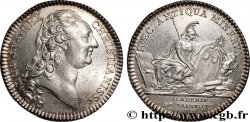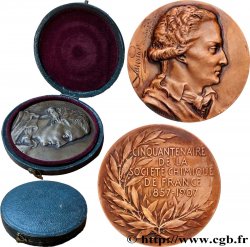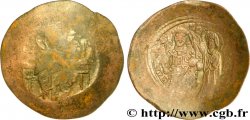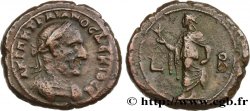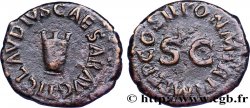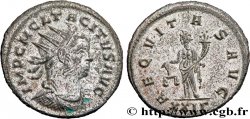E-auction 3-499 - fjt_0308 - ACADEMIES AND LEARNED SOCIETIES Académie royale d’Architecture, Contremarque R n.d.
You must signin and be an approved bidder to bid, LOGIN TO BID. Accounts are subject to approval and the approval process takes place within 48 hours. Do not wait until the day a sale closes to register. Clicking on « bid » constitutes acceptance of the terms of use of cgb.fr private e-auctions.
Bids must be placed in whole Euro amounts only. The sale will start closing at the time stated on the item description; any bids received at the site after the closing time will not be executed. Transmission times may vary and bids could be rejected if you wait until the last second. For further information ckeck the E-auctions F.A.Q.
NO BUYER'S FEE.
NO BUYER'S FEE.
| Estimate : | 28 € |
| Price : | 8 € |
| Maximum bid : | 8 € |
| End of the sale : | 04 April 2013 21:27:00 |
| bidders : | 4 bidders |
Type : Académie royale d’Architecture, Contremarque R
Date: n.d.
Metal : silver
Diameter : 30 mm
Orientation dies : 6 h.
Edge : cannelée
Rarity : R1
Catalogue references :
F.4427 var. buste - 624 C
Obverse
Obverse legend : LUD. XV. REX CHRISTIANISS.
Obverse description : Buste à droite de Louis XV signé fm [n°334], type Guéant Prieur 624C.
Reverse
Reverse legend : ACADEMIE ROYALE D'ARCHITECTURE EN TROIS LIGNES DANS LE CHAMP CONTREMARQUE R.
Reverse description : Inscription dans le champ.
Commentary
Feuardent ne répertorie de jetons de l'Académie Royale d'Architecture que pour Louis XVI. Ceux représentant le portrait de Louis XV sont fort rares.
Fondée en 1671, à l'initiative de Colbert, l'Académie d'architecture est la dernière académie royale créée. Elle siège d'abord au Louvre, puis, à partir de 1692, au Palais-Royal. Elle réunit les plus qualifiés des architectes du Roi, qui ont pour missions de jouer un rôle de conseil et d'expertise auprès de l'administration des bâtiments, de définir les règles de la "belle architecture", et de former un séminaire de jeunes architectes. En 1676, le titre d'architecte du Roi se trouve réservé aux seuls membres de l'Académie, ce qui achève de distinguer les architectes des maîtres-maçons. Quelques grands noms : Bruand, Le Pautre, Le Vau.
Feuardent only lists tokens from the Royal Academy of Architecture for Louis XVI. Those depicting the portrait of Louis XV are very rare. Founded in 1671, at the initiative of Colbert, the Academy of Architecture was the last royal academy created. It was first located in the Louvre, then, from 1692, in the Palais-Royal. It brought together the most qualified of the King's architects, whose missions were to play an advisory and expert role to the building administration, to define the rules of \\\"beautiful architecture\\\", and to train a seminary of young architects. In 1676, the title of architect of the King was reserved for members of the Academy only, which finally distinguished architects from master masons. Some great names: Bruand, Le Pautre, Le Vau
Fondée en 1671, à l'initiative de Colbert, l'Académie d'architecture est la dernière académie royale créée. Elle siège d'abord au Louvre, puis, à partir de 1692, au Palais-Royal. Elle réunit les plus qualifiés des architectes du Roi, qui ont pour missions de jouer un rôle de conseil et d'expertise auprès de l'administration des bâtiments, de définir les règles de la "belle architecture", et de former un séminaire de jeunes architectes. En 1676, le titre d'architecte du Roi se trouve réservé aux seuls membres de l'Académie, ce qui achève de distinguer les architectes des maîtres-maçons. Quelques grands noms : Bruand, Le Pautre, Le Vau.
Feuardent only lists tokens from the Royal Academy of Architecture for Louis XVI. Those depicting the portrait of Louis XV are very rare. Founded in 1671, at the initiative of Colbert, the Academy of Architecture was the last royal academy created. It was first located in the Louvre, then, from 1692, in the Palais-Royal. It brought together the most qualified of the King's architects, whose missions were to play an advisory and expert role to the building administration, to define the rules of \\\"beautiful architecture\\\", and to train a seminary of young architects. In 1676, the title of architect of the King was reserved for members of the Academy only, which finally distinguished architects from master masons. Some great names: Bruand, Le Pautre, Le Vau








 Report a mistake
Report a mistake Print the page
Print the page Share my selection
Share my selection Ask a question
Ask a question Consign / sell
Consign / sell
 Full data
Full data


